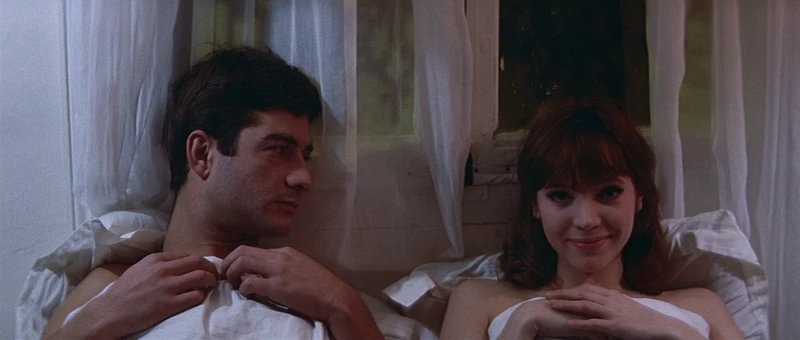Une Femme est Une Femme (1961)
| director: | Jean-Luc Godard |
| release-year: | 1961 |
| genres: | arthouse, comedy |
| countries: | France |
| languages: | French |
Opens in a coffee shop. "Coffee, very white," says a woman. "Coffee, green," says a man. I think this is a comedy. The woman winks at the camera and the sound cuts out weirdly.
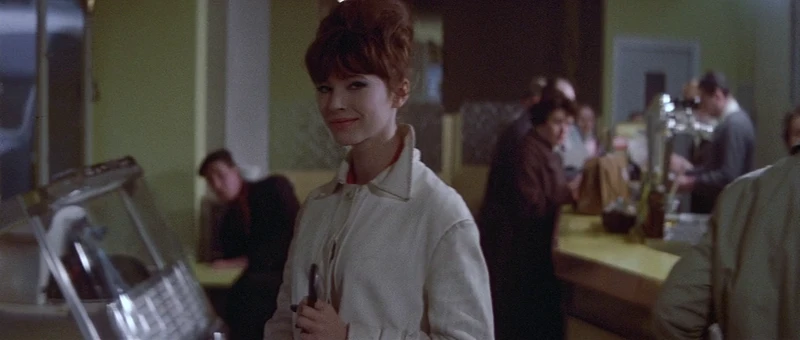
The image is strangely blurry, but not out of focus. Given the background bokeh, I'd say Godard was shooting wide open on a very soft lens. It's outdoors and midday, though, so that's weird. The following indoor shot is sharp and clear. It could be a soft focus filter. I didn't fully keep track, but it seems like soft focus might track the woman and hard focus tracks the men. Or maybe it's just random and entirely unintentional.
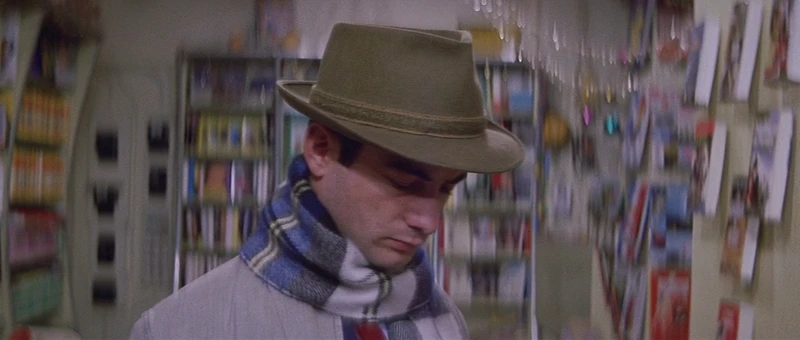
The sound cutting in and out jarringly continues, and is clearly intentional. It's a big-band trumpet soundtrack, for the most part. Other times, the music plays loudly over people while they speak so they are inaudible (though I have subtitles anyway).
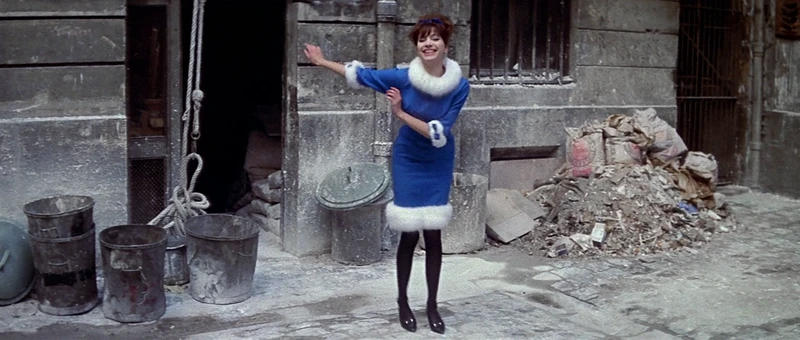
The coffee woman, Angela, works in a strip club, where the strippers perform magical stripteases – their clothes vanish miraculously as they walk or dance. She self-referentially says she wants to star in a musical comedy.
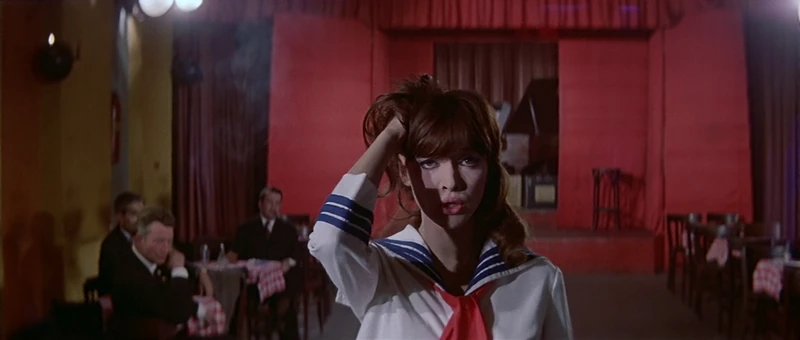
It's got that old art-comedy style of jumping around between semi- or unrelated events, and people talking past each other and making random, nonsensical statements. That, or the French is very poorly translated.
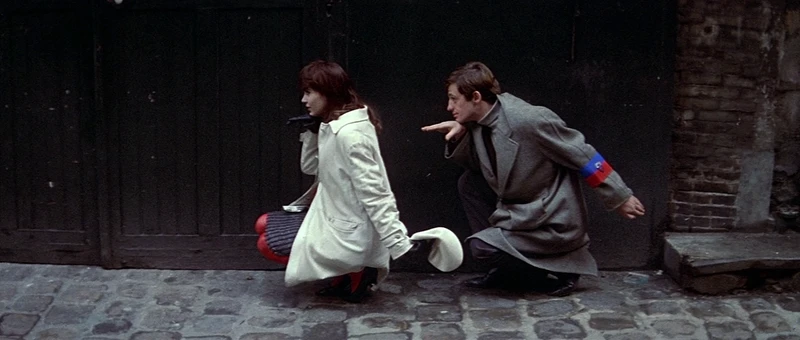
It has a high-motion style. The people are always moving, the sets are moving, the camera is moving. It's lively, but not frantic. It intersperses some style of a theatrical production and some distinct aspects of film. They break the fourth wall occasionally, and sometimes we even get text overlays that outright explain the scene or the plot itself.
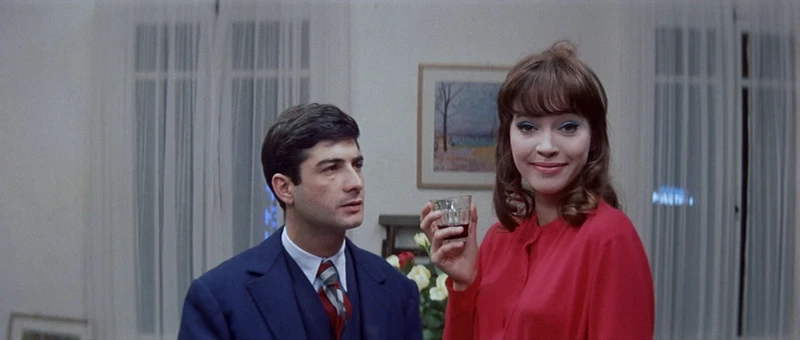
Angela and her boyfriend Émile live together, and have fake (?) lovers' spats back and forth. Angela desperately wants a baby, and her boyfriend agrees, but without the urgency she desires. Their fights are simultaneously intense and mild; she yells about dinner and says she hates him while he bicycles in circles around their apartment and says she is bad at pronouncing the letter "r". She drops some eggs and calls him a commie.
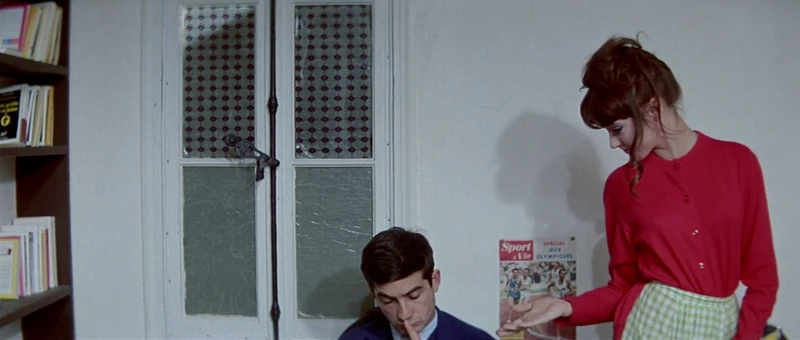
Angela tells him that if he won't father a child with her tonight, she'll go out and find someone who will. Émile doesn't believe her, so he calls his friend Alfred up to their apartment. Neither of them wants this, but they keep pushing each other further in hopes the other will break first. This quickly turns into a competition of absurdities between the men. They're all good friends, and insult each other endlessly. There is a great deal of whispering "I love you" under their breath and yelling "I hate you" aloud.
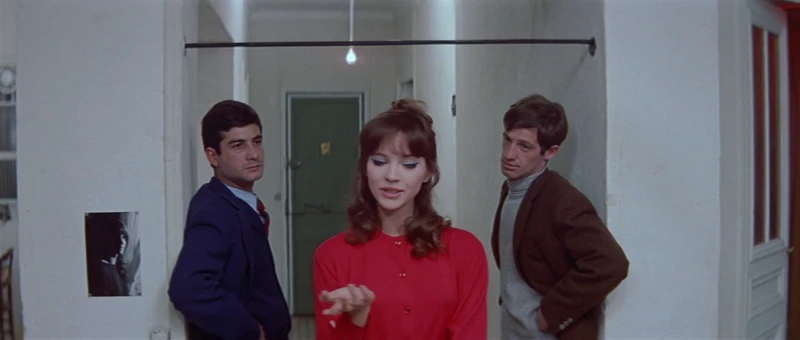
The movie seems modelled on greek tragi-comedies, performed in the style of two people monologuing next to each other. The standards of classic tragi-comedy situations are tossed to the wind, though, as it rather embraces the subtleties of more modern urban relationships. Fighting over overcooked roasts, dropped eggs, and toothpaste may seem silly on the surface, but there's more going on here than simple slapstick farce. We see a couple, fully in love, and perfectly compatible in their style of sarcastic tomfoolery, but bouncing hard against important incompatibilities regarding larger life decisions.
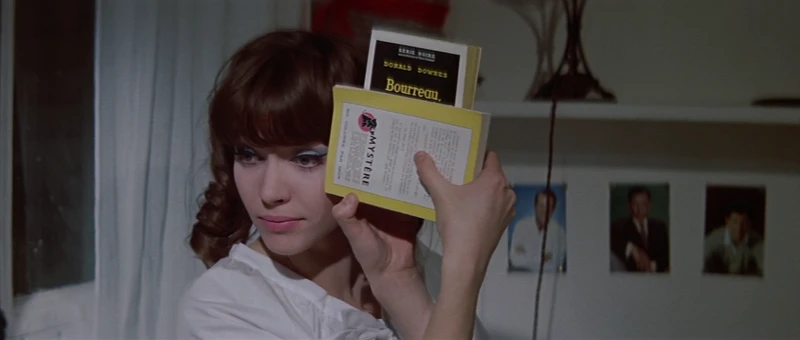
There's a pervasive "all men" vs "all women" theme to their arguments, though what we actually see is no such thing. First, in that neither of them is being more unreasonable than the other, and secondly in that clearly neither of them represent anything approaching the general behavior of their genders.
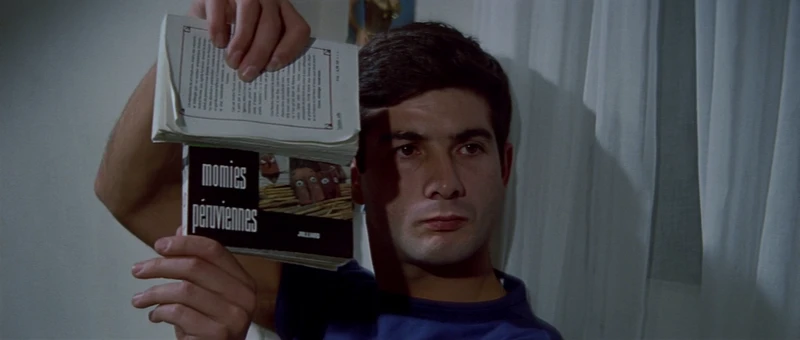
One scene is a discussion between Angela and a friend while it just jumps around between stock footage of old people on the street, and then some shots of Angela from earlier scenes in the film. Odd.
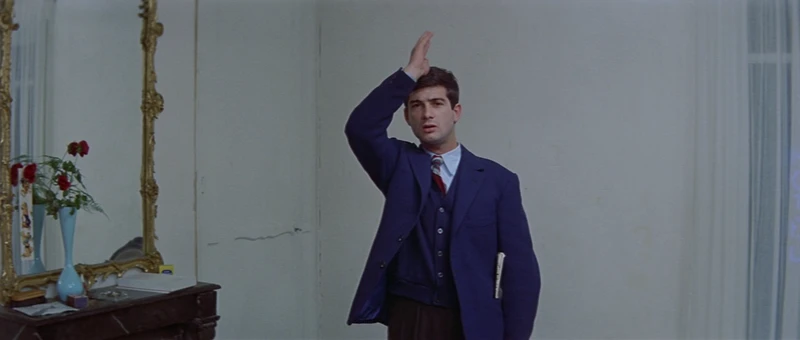
Èmile's friend professes his love for Angela, and she doesn't seem too upset about it. He shows her a photo of Émile with another woman, though not a particularly compromising one. The tension rises in a long, music-only scene where they glance apprehensively at each other. We, the viewers, prepare ourselves for the next round of greek tragedy. Angela and Émile have a fight, make up, she demands a baby again, and he says no. She runs off to have sex with his friend and he runs off to have sex with a prostitute.
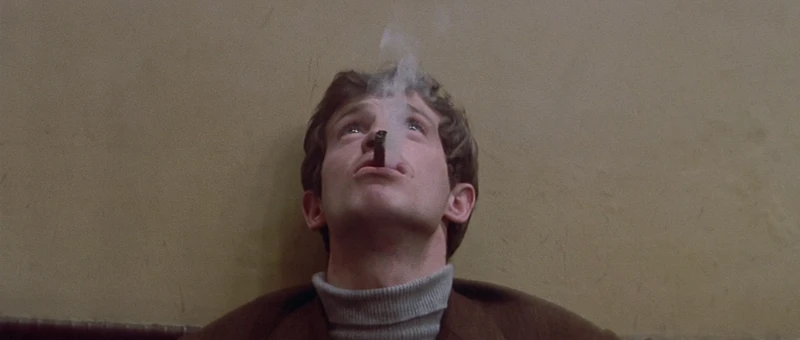
They go home, where she immediately admits to her affair and apologizes. He doesn't mention his. And women are supposed to be the bad ones? The title seems to be a French play on words, where une femme (a woman) sounds extremely similar to infâme (repugnant), so you can hear it as "a woman is a woman", "a woman is repugnant", "repugnant is a woman", or "repugnant is repugnant". The last of those makes the most sense for these two characters.
